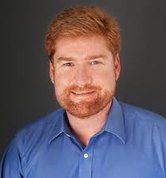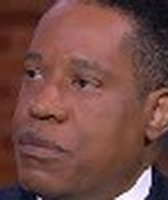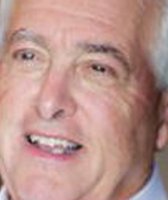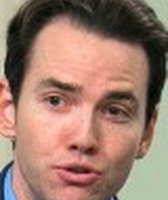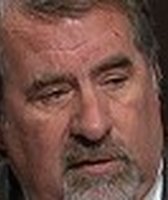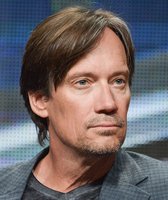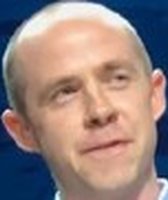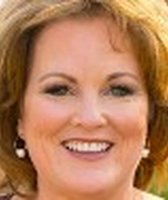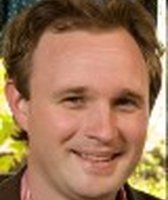Stand up for the facts!
Our only agenda is to publish the truth so you can be an informed participant in democracy.
We need your help.
I would like to contribute
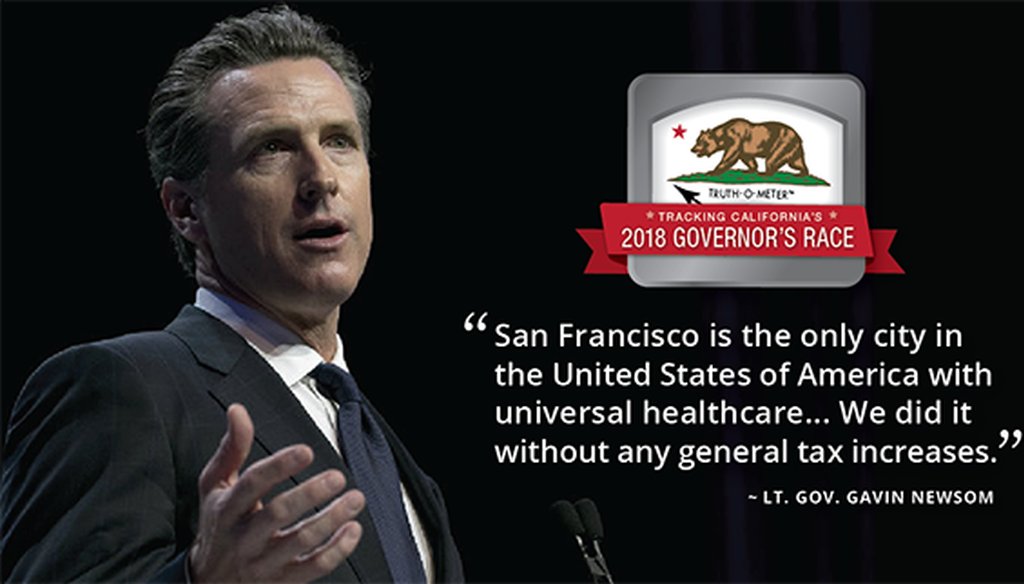
California Lt. Gov. Gavin Newsom. AP file photo
As Republicans in Washington debate the future of Obamacare, an entirely different conversation has played out in California about creating a universal health care system that covers everyone regardless of their ability to pay.
Lt. Gov. Gavin Newsom, a Democratic candidate for governor, announced in March he’s drafting a statewide universal health care plan based in part on Healthy San Francisco. That’s the citywide program he signed into law as San Francisco mayor in 2006.
His recent claims about the program on MSNBC’s Morning Joe caught our attention:
"San Francisco is the only city in the United States of America with universal healthcare, regardless of pre-existing conditions, ability to pay, but also regardless of your immigration status. We did it without any general tax increases."
Newsom makes his claim at about the 3:50 minute mark in the video above.
Newsom views Healthy San Francisco as a key accomplishment. It’s anticipated he’ll tout the program throughout his run for governor. In fact, Newsom told the Sacramento Bee in March the plan "should be replicated far and wide."
We decided to take a deeper look at Newsom’s statements as part of our Tracking the Truth series, which examines claims in the 2018 governor’s race.
Our research
First: What is Healthy San Francisco?
It’s a program that provides basic health care services to all uninsured San Francisco residents. Those include primary and preventative care, mental health services, drug and alcohol treatment and emergency care.
Funding for Healthy San Francisco comes from the city’s general fund, participant co-payments and a fee on employers who don’t provide insurance for their workers.
The law signed by Newsom explicitly makes Healthy San Francisco available to all city residents, regardless of their health, income level and immigration status.
So, Newsom gets it right on those points of eligibility.
The city’s universal healthcare program is not the same thing as a single-payer health plan, which would establish one central government health insurance provider. A single-payer proposal stalled in the California Legislature this year.
Instead, San Francisco’s universal plan is another option for residents in addition to traditional forms of health insurance, such as Medicare, Medicaid or private insurance.
Is Healthy San Francisco really health insurance?
Newsom describes the city’s program as health care. But does that mean it’s also health insurance?
Experts say: No. The program shouldn’t be considered health insurance because people aren’t covered outside city lines. If you fall ill and need treatment in another locale, costs could still be exorbitant. The text of the law itself says: "The Health Access Program is not an insurance plan for Health Access Program participants."
"I try to eschew the term coverage because it is not insurance coverage. It’s not portable. If you go across the bridge to Oakland and something happens, it doesn’t cover you," said Alice Chen, chief medical officer for the San Francisco Health Network, which administers Healthy San Francisco.
Chen said a better description is "universal access to care" for San Francisco residents at the city’s many community clinics and hospitals.
"It’s meant to avoid people becoming bankrupt," Chen said.
The program focuses on preventative care so that patients don’t have to rely on more expensive emergency services, she added.
Asked for evidence to support Newsom’s statement, his campaign spokesman pointed to several news articles that describe the San Francisco program.
Drop in enrollment
Because Healthy San Francisco limits residents to treatment within the city, many participants opted to purchase more comprehensive insurance when the Affordable Care Act went into effect in 2014.
That led to a large drop in sign-ups. At its peak, Healthy San Francisco enrolled 60,000 San Franciscans. Now, it has fewer than 12,000.
Experts said, however, this huge decline does not mean the program failed.
"That is actually a good thing," said Gerald Kominski, director of the UCLA Center for Health Policy Research. "It means people have other insurance options available to them. They didn’t have those prior to the ACA. So, what you’ve seen is people shift off of this program and on to the ACA."
Chen said Healthy San Francisco prepared many people who previously had no experience with any health program to enroll in Medi-Cal or insurance under the Affordable Care Act.
No general tax increase?
Newsom’s claim that Healthy San Francisco was instituted without a general tax increase is technically correct, but there’s more to the story.
Businesses with 20 or more employees that don’t already offer health insurance are required to pay into the program. Those with with 20 to 99 employees must pay $1.76 per hour per worker, while those with 100 or more must pay $2.64 per hour per covered employee on health care, according to a recent Mercury News article.
That might not be an across-the-board tax.
But some restaurants in San Francisco have found a way to ease their burden: They pass along a health fee to diners to cover the cost of payments to Healthy San Francisco.
One could argue some of the cost of the program is passed on through this specific charge — if not through a general tax.
‘The only city’
Newsom emphasized in the Morning Joe interview that San Francisco is the only city with universal healthcare.
We wanted to know if any other jurisdiction had a similar plan, and whether Healthy San Francisco had really delivered health care to all San Franciscans.
A comparable statewide plan was passed in Massachusetts 2006 with the goal of providing health insurance to nearly all residents.
That state law reduced the number of uninsured individuals by almost half in its first year, to 5.5 percent. About 2.8 percent of Massachusetts residents remained uninsured in 2015, according to the United States Census Bureau.
Other cities like New Orleans, Miami, Pittsburgh and Denver all expressed interest in creating a policy similar to Healthy San Francisco. But none have come to fruition.
San Francisco appears to be the only city to have enacted its own policy of universal coverage. But is it fair to say that produced universal coverage?
About 6.3 percent of San Francisco’s residents lacked insurance in 2015, according to the Census Bureau. That’s higher than any county in Massachusetts, though it’s still ranks well compared to most other areas in California and the nation.
California’s statewide uninsured rate was 9.7 percent in 2015, while it was 3.2 percent in Massachusetts the same year, according to census figures. Nationally, the uninsured rate was nearly 12 percent at the end of 2015, a Gallup poll found.
Healthy San Francisco was also able to provide health services to around 75 percent of uninsured individuals before the ACA became law. But Obamacare took effect that number fell to 25 percent — something Healthy San Francisco attributes to difficulty in reaching out to uninsured individuals.
Model for California?
Experts said Healthy San Francisco could be a model for a statewide universal healthcare program.
Kominski said such a plan could help the roughly 3 million Californians who remain uninsured, especially the 1.5 million who are undocumented, have no health insurance and are ineligible for benefits under the Affordable Care Act.
Those who have insurance through the ACA but still struggle to pay for it would also benefit, he said.
The experts added, however, that such a program might not work in rural counties with few community clinics, doctors and nurses.
Newsom acknowledged this limitation in an interview with the Sacramento Bee in March 2017. "I think we can learn a lot for the state of California from what we did with Healthy San Francisco. We had the resourcefulness, the resources, and the boldness and audacity to try something new. It’s not necessarily something that can be adopted in all 58 counties, but it can be adopted .... where the majority of California’s population is."
Laurence Baker, professor of health research and policy at Stanford University, told us the design and cost of such a plan would be the biggest challenges.
"It’s possible for a state like California to operate an additional health care program," Baker said. "But the devil’s always in the details."
Our conclusion
Newsom’s statement on Morning Joe about San Francisco’s universal health care system was generally on the right track, though it could use some clarifications.
We didn’t rate it on our Truth-O-Meter, but instead examined its complexity and predictions about whether Healthy San Francisco could be a statewide model.
We found Newsom was right about eligibility. It covers all San Francisco residents regardless of pre-existing conditions, ability to pay or immigration status.
But as experts noted, the plan is best described as universal health care access. It shouldn’t be confused with traditional health insurance because it’s not portable outside city limits. Newsom didn’t describe it as health insurance, but he also didn’t spell out the plan’s limitation.
Additionally, Newsom’s claim that the program didn’t require a general tax increase ignores the fact that some restaurants have added a fee to customers’ bills to make up for program costs of imposed on them.
PolitiFact California will continue to fact-check health care claims as we cover the 2018 California governor’s race.
Has a candidate made a claim you want fact-checked?
Email us at [email protected], or contact us on Twitter or Facebook. Or fill out a form here with your idea.
PolitiFact California intern Eli Flesch contributed research and writing to this article.
Our Sources
Lt. Gov. Gavin Newsom, interview on MSNBC’s Morning Joe, July 12, 2017
Dan Newman, campaign spokesman for Gavin Newsom, email exchange July 31, 2017
Alice Chen, chief medical officer, San Francisco Health Network, interview July 31, 2017
Laurence Baker, professor of health research and policy, Stanford University, interview July 31, 2017
Gerald Kominski, director, UCLA Center for Health Policy Research, interview, July 31, 2017
The Kaiser Family Foundation, "Healthy San Francisco," March 2008
San Francisco Board of Supervisors, "San Francisco Health Care Security Ordinance," July 25, 2006
Healthy San Francisco, "Annual Report to the San Francisco Health Commission (For Fiscal Year 2008-09)," September 1, 2009
Healthy San Francisco, "Annual Report to the San Francisco Health Commission (Fiscal Year 2014-15)," accessed July 2017
The Sacramento Bee, "Could San Francisco’s universal health care model work for all of California?" March 16, 2017
The Sacramento Bee, "Newsom to pitch universal health care as California governor’s race grows crowded," March 13, 2017
The Mercury News, "San Francisco’s universal health care plan eyed as model for California," April 2, 2017
The New York Times, "San Francisco to Offer Care for Uninsured Adults," September 14, 2007
United States Census Bureau, "Small Area Health Insurance Estimates (SAHIE)," 2015
The Kaiser Family Foundation, "Massachusetts Health Care Reform: Six Years Later," May 1, 2012
The Boston Globe, "Rate of uninsured in Mass. reaches all-time low," September 17, 2016
